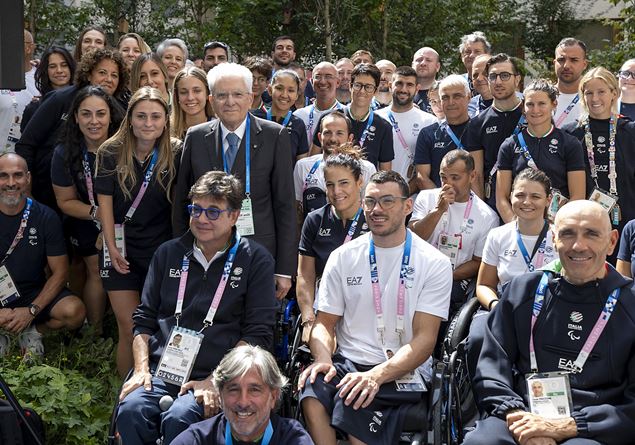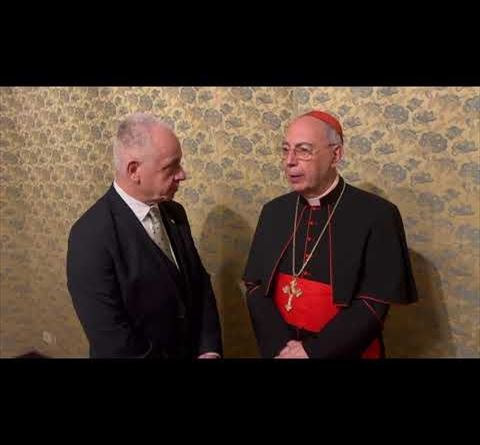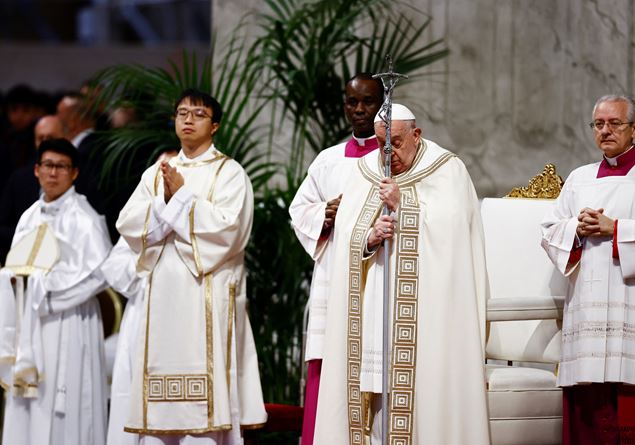
Having won 28 world titles, 27 European titles and 45 Italian titles, as well as the title of greatest Paralympic water skier of all time, Daniele Cassoli continues to dedicate his life to sport. Blind since birth, he was introduced to swimming since childhood, “first as a child, and then as a person with a disability”, as he tells us. Currently Honorary President of Piramis Onlus, an association that helps people in difficulty, and founder of Real Eyes Sport, which takes care of visually impaired children, he told us from his perspective about the Paris Paralympics, inaugurated on August 28 on the Champs Elysees. “The Paralympics are always a very emotional ceremony. Over the years, the numbers have continued to grow, as has the attention, the number of people involved, the public and this is symptomatic of the fact that there has been a great growth in the perception of Paralympic sport. The other significant thing is that, at least for us Europeans, it represents a greater opportunity, because in the collective perception they are compared to those of London 2012, the Paralympics that brought about the turning point. After 12 years, the Paralympics are easier to follow, they are close to home, many people are going to see the athletes from Italy. There is an involvement that, in the case of our country, is even stronger, if we also think that in two years we will be the center of the world with Milan-Cortina. We cannot ignore the fact that the Paralympics are also a social manifesto, the demonstration that when the human person is placed at the center, you get things that you didn’t even expect. If we just think back to 30 years ago, when the idea that a person with a disability could do sports seemed like a mirage. Now part of the world’s attention is turned to them”
What role does it have in these Paris Paralympics?
“Water skiing is not part of the Paralympics, and they are always very complex events, very difficult to follow, so I follow them from home but I am there with my heart. I followed the entire preparation because I am a member of the Board of the Paralympic Committee and therefore I clearly experience all the work that the Italian Paralympic Committee has done and is doing. I must say that abroad many foreign organizations see the growth of the Italian Paralympic Movement as a stimulus and a point of inspiration.”
What advice would you give to athletes who are about to participate in their first Paralympics?
“I understand the tension, because it’s an event that you prepare for four years, in this case three. I would tell them to have fun anyway. In sports, when you have fun, you always manage to give your best. I would also say to live this thing with pride because not everyone can be there, for many reasons: from training, from selection but also because there are more complex disabilities for which there are no sports yet or because not all kids with disabilities find a sporting path. So gratitude is fundamental, because living an experience like that like for me living the world championships is for the privileged. And lastly – it’s taken for granted but it’s never a given in sports – I hope they give their best and have the emotional and environmental conditions to do so.”
What are your goals or projects related to sport and inclusion?
«I am Honorary President of Pyramis Onlus and I founded Real Eyes Sport. With these realities we have the dream of guaranteeing sport to everyone, because if it is true that there are 141 athletes for Paris, it is equally true that in Italy there are over a million people with disabilities. This means that there are many people who can be reached by sport, who will never be heard of because they may not experience the limelight, but for whom it is right that society offers an opportunity to play sport. Even today in 2024, in our country, many families who have children or young people with disabilities find closed doors, difficulties, inaccessible sports facilities, they do not find trained technicians so there is still a lot of work to do. These numbers and this attention around the Paralympics give the opportunity to strike even harder while the iron is hot. The Paralympics contribute to warming up this iron, then we need a movement capable of giving meaning to the growth of the media echo. I am lucky enough to go to companies and schools a lot to bring my testimony. The goal is to grow professionally as a trainer and to make sure that my association, but in general, is always easier for a family to leave home to go and play sports, find welcome, open doors and roads of possibility and not impossibility. Certainly compared to 30 years ago, it is another geological era. These are times to be welcomed with gratitude, fertile for those who do this job. I have been blind since birth and my parents made me become a child first and then a blind person. Even today, many times they make disabled people first and then people. If we all worked so that people are pushed to value themselves, then we get to the extraordinary stories that these Paralympics will tell us.
What would change in the world of Paralympic sports?
“This is a discussion that also applies to sports in general. What I want to try to do is consider sports as an educational ally. I am referring to schools, where kids move too little. The same is true at home, because parents do not have time to dedicate to sports and it is easier to keep kids at home. Even trivially, the INVALSI tests do not exist in physical education. Youth games are no longer guaranteed. I hope in general that there is more sports in the lives of young people and also in that of adults. Often in companies, for example, they ask how to create a team, how to build trust. If we start with kids, we will have adults with more developed personalities, with better relational skills.
Then, growing up, sport becomes well-being, health…
“If we were able to guarantee sports at multiple levels, we would also have fewer sick people, therefore fewer pathologies to treat. There is a real need to offer more sports and to have families more ready to welcome sports, not to have champions, but to invest in the emotional and physical education of each person. I hear a lot of kids who say that because of the amount of studying they have stopped doing sports. Not only disabled people but also able-bodied people. Sports make as much sense as studying. This is a speech that applies to everyone, even more so for those with a disability, because in addition to being an educational ally it also becomes a rehabilitative ally, because it makes you want to do things that the disability sometimes takes away.”
(in the cover photo, President Sergio Mattarella with some athletes of the Italian delegation at the Paris Games)







